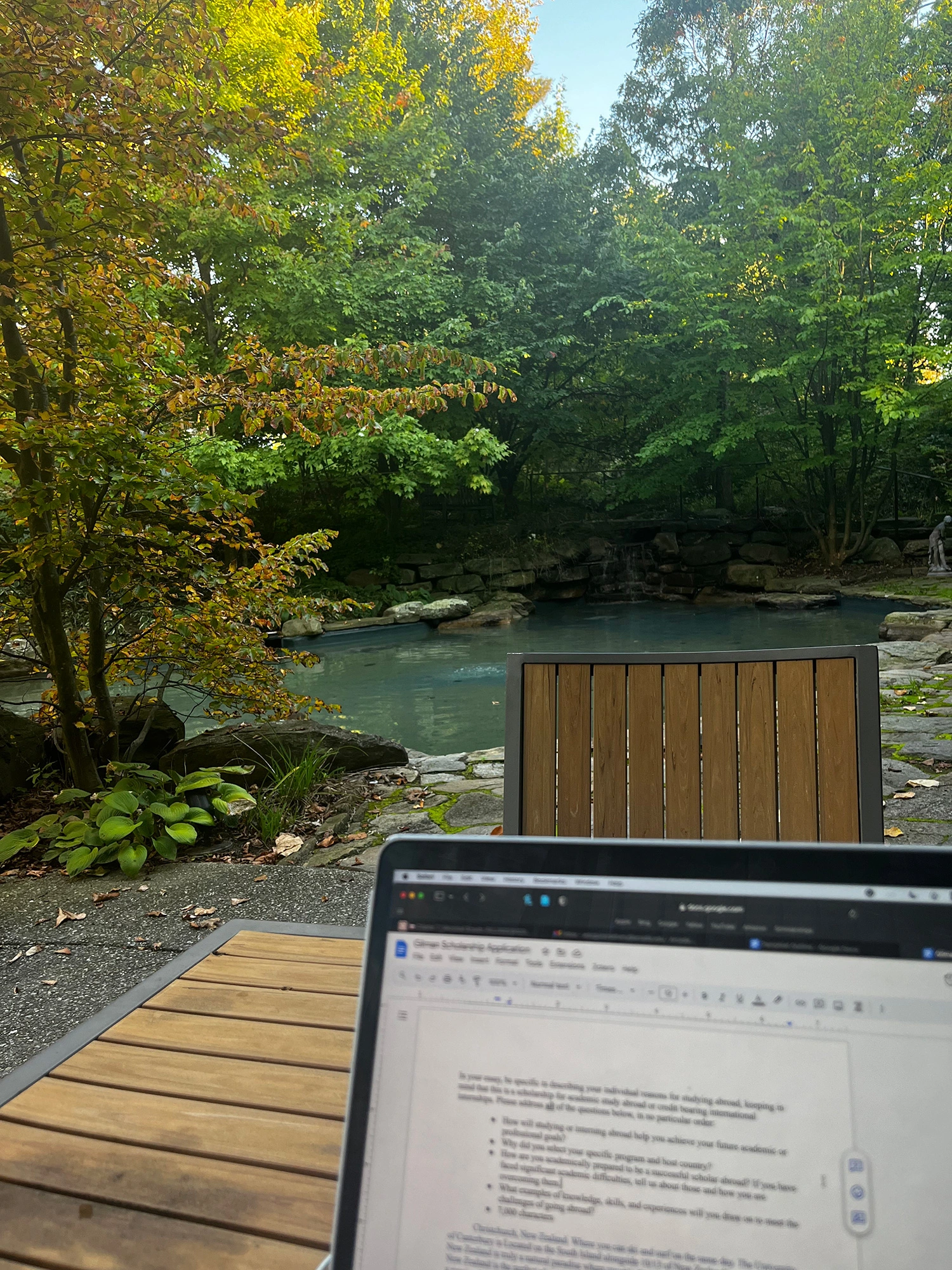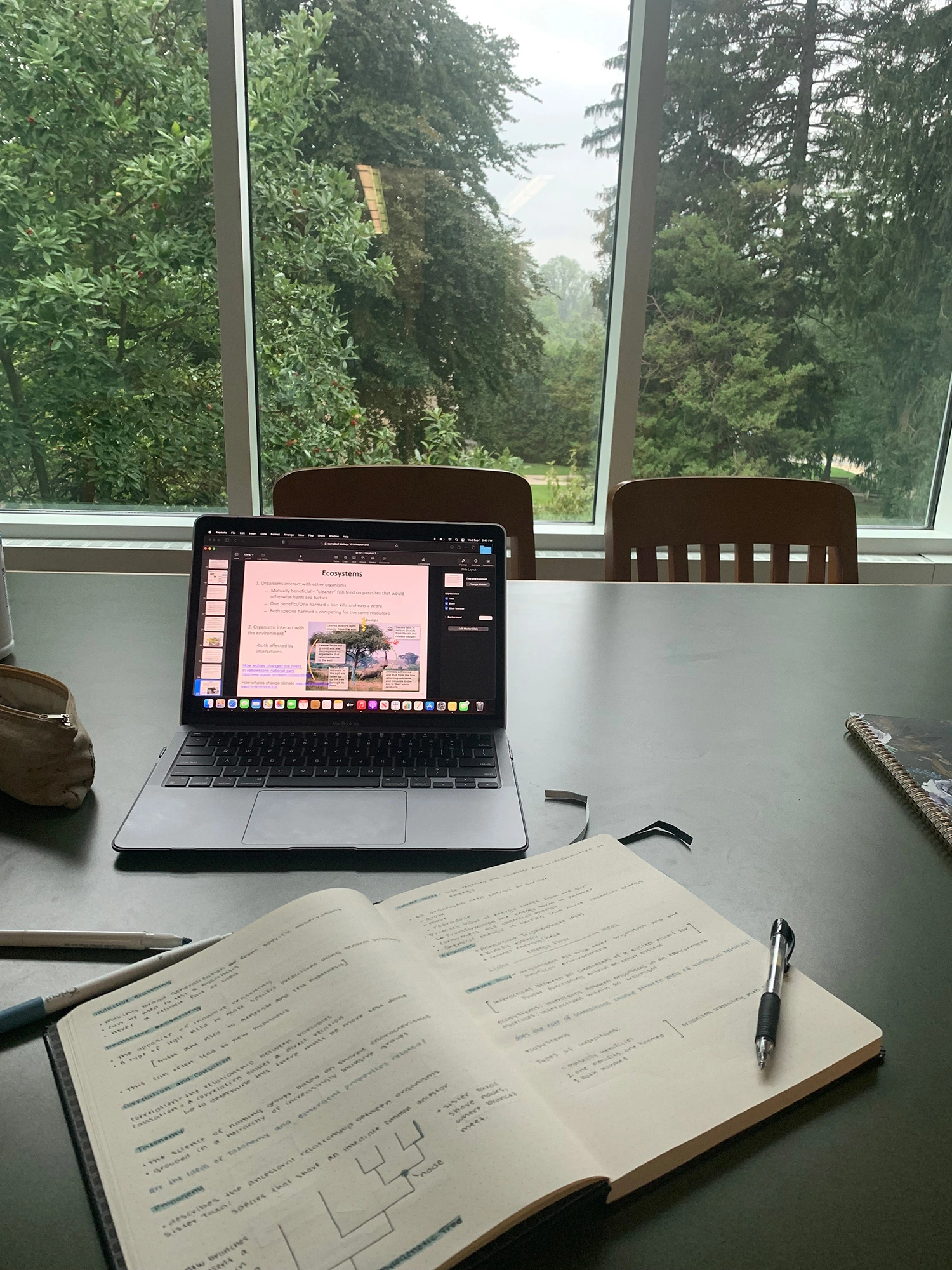Discipline and Dedication: How to Succeed Without Getting Overwhelmed
College comes with all new things. A new home, new food, new routine. For some of us, it also comes with learning how to study for the first time. In this blog, we are going to break down some helpful study tips to get you started.
Let’s start with study groups. Honestly, I used to think they were a waste of time and prone to getting distracted with your friends. But once I tried it with the right group of people, I knew it was worthwhile. In a group setting, you have the unique ability to bounce ideas off each other, explain concepts in ways that make sense, and discover things you hadn’t thought about. Some of my best study sessions have been with a group of friends who are just as motivated as I am to learn effectively.
However, I didn’t always feel this way. During my freshman year, I went through a major family trauma that completely turned my world upside down. I didn’t know how to process everything, so I channeled all my emotions into studying. After all, I had my first round of college exams coming up, and I needed to perform well to get into medical school. Nothing else mattered at the time.
What really clicked for me in this group was one of the best study techniques I know: teaching other people. Have you ever heard the phrase “see one, do one, teach one?” Well, this is it. First, I watched the lecture or read the material (saw it), then I practiced the material on my own (did one), and finally, I taught it to my classmates (taught one). Teaching someone else forces you to break down complex concepts, which not only helps them understand but also reinforces your own learning. I’m confident that this technique is effective for any subject.
Now, let’s talk about independent study techniques. Before you can get to teaching, you need to learn the material first. First up: Spaced Repetition. It sounds fancy, but it’s really just reviewing material over time to reinforce it in your memory. Rather than cramming the night before an exam (we’ve all been there), spaced repetition allows you to review material at increasing intervals, which helps your brain retain information long-term. There are apps like Anki that help you set up flashcards and schedule your reviews. Trust me, it works, I was skeptical too.

Next: the Pomodoro Technique. This technique saved my life during organic chemistry. Orgo is the ultimate “weed-out” course for pre-med students. It’s infamous for being one of the hardest classes, and the pressure starts before you even set foot in the lecture hall. I knew I’d need to put in hours of studying, and I couldn’t afford to burn out. Enter Pomodoro.
The method is simple: work for 25 minutes, then take a 5-minute break. After four “Pomodoros,” take a longer break. Sounds easy, right? But the real magic is in how it keeps you focused. Organic chemistry requires long hours of repetition, and by using Pomodoro, I could break those hours into manageable chunks. After three hours, your brain gets exhausted. Pomodoro forces me to take breaks that keep my brain fresh, helping me push through longer study sessions.
But here’s the key: DO NOT go on your phone during the 5-minute breaks. I made the mistake of scrolling through Instagram once, and 15 minutes flew by. Instead, I learned to get up, stretch, or take a quick walk. Even five minutes of fresh air helped me stay sharp. Pomodoro helped me stay disciplined during those long, tough sessions, and I couldn’t have made it through organic chemistry without it.
College isn’t easy. You’ll have days when you’re stressed, overwhelmed, or just want to skip class and binge Netflix. But with the right study techniques, a solid support system, and discipline, you can truly accomplish anything. The key is to find what works for you, stick to it, and remember that there’s always help just around the corner.



